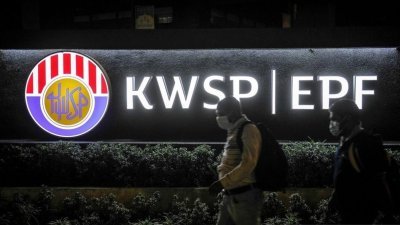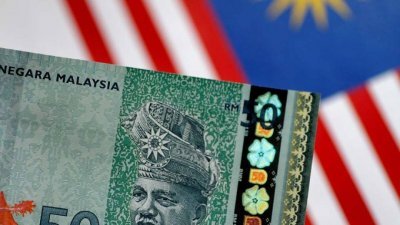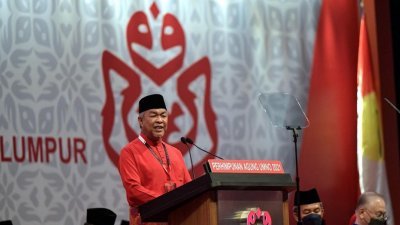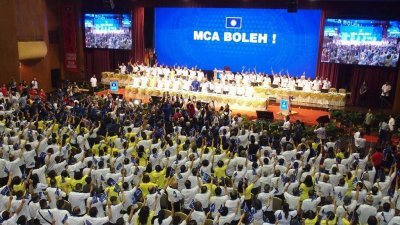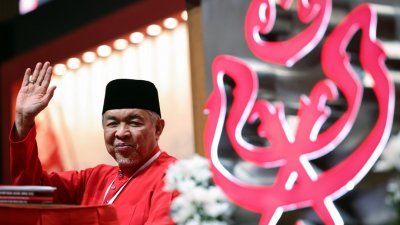一位常对我国的政治与经济事务激烈抨击的社交媒体评论人,最近有一篇文章谈及了一宗涉及巨额公款的商业与政治圈的腐败和欺诈事件。这一揭发会否像一马公司丑闻般,改变马来西亚政治格局。
这化名为金融推特(FT)的评论人,对近日有关反贪会逮捕一名企业高管的新闻做出了跟进,该企业高管被指充当分配政府项目的中间人。这些政府项目,是2020年至2022年新冠疫情期间推出的经济刺激配套计划下的项目。
据报导,至少有五人因涉嫌挪用925亿令吉的公款而受到反贪会的调查。这些人相信是帮助多家公司以直接谈判方式,获得价值5000万至5亿令吉政府项目的中间人或安排者。
这篇文章最引人入胜的地方在于,其推测在希盟政府于2020年被推翻后,上台的新政权在过去两年中,如何挪用公款与内部斗争之间的联系。
文章点名了一些人、商业机构、政客和政党的名字。其中包括土团党和土团党主席慕尤丁。无论如何,任何人若未被证实及判决有罪,都应该被假定为清白的。
毕竟,也没有法律禁止任何人在私营或公共部门项目中担任中间人、顾问、谘询师或任何其他中介角色时收取佣金或以其他形式支付的费用。
但这种无罪假设,只有在支付方和接受方如实报告和说明这些付款的情况下才能有效。
在我国,过去数十年来发生的众多大型金融丑闻中,就存有非法佣金类似案件。这些丑闻包括
90年代的315亿令吉外汇交易损失
80年代的150亿令吉大马土著金融丑闻
100亿令吉高价收购马航丑闻
120亿令吉巴生港口自由贸易区丑闻
110亿令吉柏华惹钢铁厂丑闻
20亿令吉“马明可”(Maminco)弊案
Makuwasa证券公司的20亿令吉丑闻
12亿欧元的鲉鱼级潜水艇抽佣案
2.5亿令吉养牛案
事实上,根据马来西亚透明国际组织(TIM)的数据,自2013年以来,腐败对我国每年带来的损失高达国内生产总值(GDP)的4%。从2013年至2017年,这损失加总起来相当于2123亿令吉。
尽管,国际透明组织没有最新相关贪腐数据,但鉴于一马公司丑闻和“法庭帮”的案件,以及公众对政治资金的关注,催生了关于政治献金法案下,反贪会和其他政府机构应更主动去追查上述文章中的指责,即在新冠疫情期间发生的违反程序、违规和不正当的行为。
希盟反腐败立场
希盟领导人安华在第15届大选之前的许多声明中,表达了根除腐败的重要。这也是选民在第14届大选中关注的课题之一,进而致使希盟获胜。反贪腐也对第15届大选结果发挥了作用。
最近以首相身份上电视访谈节目时,安华表示,反贪会、总检察署等机构可自主运用赋于权力,全面打击贪腐。
他承诺:“不会有任何干涉。事实上,我给了反贪会完全的灵活性和权力,许多案件正在慢慢曝光。执法当局有权调查任何人,我不会干涉反贪会。”
安华表示,掠夺国家和人民的财富是完全不能接受的,更何况这由当权者所为,更是令人无法容忍。
他还强调,“只抓小鱼不抓大鱼的时代已经一去不复返了”,在他领导下绝不会有选择性提控。
政府承诺是不够的
在反贪腐上,拟议中的法案和法律倡议清单中,缺少的一个重要威慑力量,即对举报人或吹哨者的有效保护。
在美国,《举报人保护法》(WPA)给予举报的联邦政府公务员保护,只要其相信所举报的证据是合理的(不一定是真的),即:
任何违反法律、法规或规章的行为;
严重管理不善,严重浪费公款,滥用职权;或者
对公众健康或安全的重大和具体危险。
马来西亚也应该制定类似更有效的举报人保护措施,尤其现有法律被认为薄弱且没为举报人提供足够保障。举报人保护法律应包括,扩大对公民举报人的保护,例如英国的《公共利益披露法》提供的保护,该法案确保向有关当局举报的刑事犯罪和其他违法行为的举报人,可以获得免遭对付的保护。
安全和有效的举报人保护机制,是应对高层贪污的最有效武器,尤其在媒体和社会中普遍存在著恐惧文化,以及有限言论自由下,导致贪腐如癌症般在政治体系中滋长。
贪腐是一种“癌症”,如果不迅速治疗,就会像癌症般杀死受害者,即──这国家。
林德宜《金钱政治形塑政府?》原文:Is Money Politics Shaping Government
The latest article by a fierce social media critic of the nation’s political economy has another story of corruption and fraudulent activity involving business and politics, and enormous sums of the public’s money.
Can this revelation reveal a similar game changer in Malaysia’s politics in the way that the 1MBD scandal has done
The commentator, going by the nom de plume of Finance Twitter (FT), was following up on news reports of the arrest by the Malaysian Anti Corruption Commission of a business executive who allegedly was a "middleman" in the award of government projects under the Economic Stimulus Package between 2020 and 2022.
It was also reported that at least five individuals had come under the commission's radar over alleged misappropriation of RM92.5 billion in public funds.These individuals were believed to be the masterminds or middlemen to help various companies obtain government projects worth between RM50 million to RM500 million through direct negotiations.
What has been most tantalising about the FT article is its speculative write up of the link between the misappropriated monies and the political infighting taking place at the highest levels of government during the past 2 years following the ousting of the Pakatan Harapan government.
Various names of individuals, business organisations, politicians and political parties have been identified by the article. These include Muhyiddin Yassin and his party Bersatu as the key players.
All can be presumed to be innocent of the alleged charges.
After all, there is no law against anyone receiving commissions or payments in other forms for their services in acting as middlemen, consultants, advisers or in any other intermediary role in private or public sector projects.
But this assumption of innocence is valid only so long as these payments are truthfully reported and accounted for by the paying and receiving party.
Similar stories of illegal commission extraction have been raised in connection with the numerous mega financial scandals alleged to have taken place over several decades.. These scandals include
Forex RM31.5 billion
BFM RM15 billion
MAS RM10 billion
PKFZ RM12 billion
Perwaja RM11 billion
Maminco RM2 billion
Makuwasa RM2 billion
Scorpene submarine Euro 1.2 billion
Cowgate RM 250 million
In fact, according to Transparency International Malaysia (TIM), corruption has cost the country about 4% of its gross domestic product (GDP) value each year since 2013.
Added together, this amounts to a figure of some RM212.3bil between 2013 and 2017.
Although TIM has not updated the cost of corruption, given the country’s latest experience with 1MDB and “court cluster cases”, and public concern over political funding which is currently driving the tabling of a new law on political donations and financing of political parties, it is important that the MACC and other government agencies and bodies walk the extra mile in pursuing the breaches of procedure, irregularities and misdemeanours that were incurred during the covid expenditure period alleged by the FT article.
Pakatan Harapan’s Stand Against Corruption
Pakatan leader Anwar Ibrahim in numerous pronouncements before GE 15 had voiced the importance of stamping out corruption. This issue was one of the key voter concerns that accounted for Pakatan’s victory in GE14. It also played a role in shaping the outcome of GE15.
Most recently speaking as Prime Minister during the live telecast talk show, Naratif Khas, Anwar said the Malaysian Anti-Corruption Commission (MACC), Attorney General's Chambers and alike were free to use the powers vested in them to fight corruption at all levels.
He promised: "There will not be any interference whatsoever. In fact, I have given MACC complete flexibility and authority, that many cases are slowly being exposed. The enforcement authorities are given the authority to investigate and I won't interfere if someone is being investigated by MACC".
Anwar said robbing the nation and people's wealth was completely unacceptable and the fact that it was done by people in positions of power made it worse
He also stressed "The tales of only the small fry and not the big sharks being caught are all gone" and that selective prosecution would not exist in his administration.
Government Promises Won’t Be Enough
An important deterrent missing from the list of proposed laws and legal initiatives is that relating to the effective protection of whistleblowers.
In the United States, The Whistleblower Protection Act (WPA) protects federal employees who make disclosures which the employee reasonably believes evidence (does not have to actually be true):
Any violation of any law, rule, or regulation;
Gross mismanagement, a gross waste of funds, an abuse of authority; or
A substantial and specific danger to public health or safety.
Similar more effective whistleblower protection should be enacted in Malaysia as the current law is acknowledged to be weak and does not provide sufficient safeguards to intending whistle blowers. This law can include extension of protection to public citizen whistleblowers such as that provided by the United Kingdom’s Public Interest Disclosure Act which ensures protection against retaliation is available to whistleblowers who disclose criminal offences and other legal violations to appropriate authorities.
Secure and effective whistleblower protection in relation to high level corruption may perhaps be the most effective weapon in the armoury the country needs to counter the fear culture pervasive in media and society, and the limited freedom of expression that have permitted this cancer in the political system to grow unremittingly. It is a cancer which like other cancers if not treated quickly will kill the victim, in this case, the nation.
要看最快最熱資訊,請來Follow我們 《東方日報》WhatsApp Channel.










